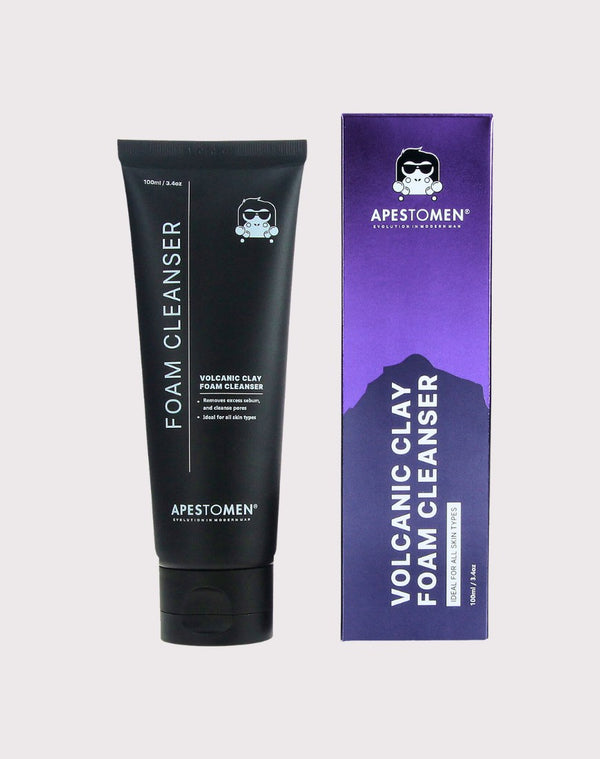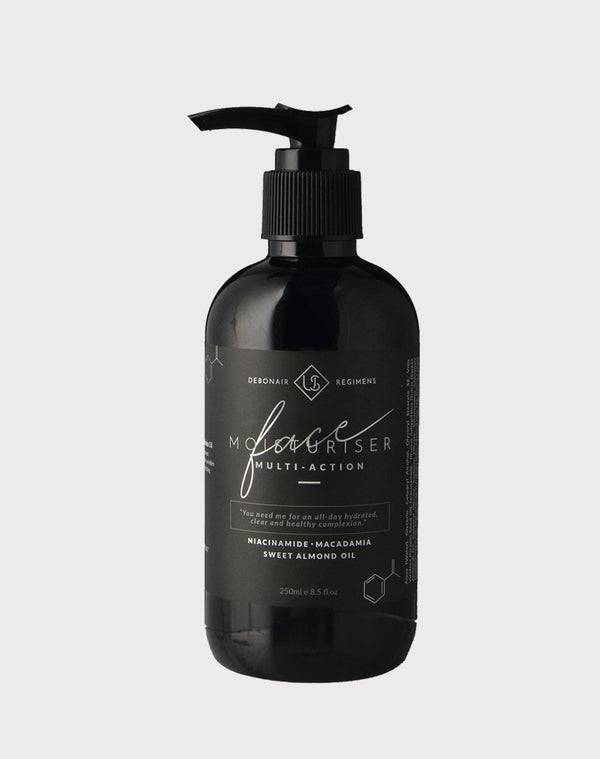
Best Practices for Sensitive Skin
It’s definitely hard to say which is worse - the bad reactions or the sheer unpredictability of these reactions.
People who frequently encounter allergic or irritant dermatitis reactions, such as stinging, burning, redness, dryness, etc., when using skincare products, or those who have skin conditions like rosacea, psoriasis, or eczema, are commonly identified as having sensitive skin.
If you have sensitive skin, it's important to adopt a gentle and cautious approach to your skincare routine. Here are some best practices to help you keep your sensitive skin happy and healthy:
Avoid excessive exfoliation
Exfoliating can help remove dead skin cells and reveal a brighter complexion, but overdoing it can be harmful to sensitive skin. Limit exfoliation to once or twice a week using a gentle exfoliator with round beads or enzymes. Avoid harsh scrubs or chemical exfoliants that can cause irritation.
Less is more
Of course, most of us may not know about basic skincare, but it is also good to know that products with less ingredients are better for sensitive skin. Plus, you'll be able to save some cash and give your skin the love it deserves by keeping your skincare routine effortless and minimal!
Fewer ingredients means fewer chances of experiencing adverse reactions. Just focus on the essentials: a gentle cleanser, moisturiser, and sunscreen. And you’re all set.
Keep your skin hydrated
Moisturising is essential for all skin types, but especially for sensitive skin. Look for fragrance-free, hypoallergenic moisturisers that provide hydration without clogging pores. Apply moisturiser to damp skin after cleansing to lock in moisture and soothe any irritation.
Protect your skin from the sun
Sun exposure can aggravate sensitive skin, leading to redness and increased sensitivity. ALWAYS wear a broad-spectrum sunscreen with an SPF of 30 or higher, even on cloudy days. The ideal sunscreen for sensitive skin is typically a mineral (physical) sunscreen. It contains zinc oxide and/or titanium dioxide, forming a protective barrier on the skin that blocks sun rays instead of allowing them to penetrate. These sunscreens are safe for sensitive skin because they do not absorb heat or ingredients into the skin.
Patch-test
Before incorporating a new skincare product into your routine, always patch test it first. Apply a small amount of the product on a small area of your skin, preferably behind your ear or on your inner forearm. Wait for 24 to 48 hours to see if any adverse reactions occur. If your skin shows no signs of irritation, it should be safe to use the product.
Know your triggers
To effectively care for sensitive skin, it's important to be mindful of the ingredients that can trigger sensitivity. Some common culprits include fragrances, dyes, and preservatives like parabens. Surprisingly, even products that smell nice can be harmful to your skin. Look for skincare products labelled as fragrance-free or unscented to minimise the risk of irritation. Artificial fragrances and essential oils can cause redness, itching, and breakouts in sensitive skin. Instead, opt for gentle and soothing ingredients like aloe vera, chamomile, or oatmeal, which will nourish and calm your sensitive skin.
If you had a bad reaction, step back
While you may take great care with your skincare routine, it's important to acknowledge that skin reactions can be unpredictable. When that happens, it is advisable to simplify your routine by using only one product at a time for at least a week. This will help identify the culprit causing the reaction and allow your skin time to heal. Once the reaction subsides, gradually reintroduce one product at a time, giving each product a week before adding the next one.
Remember, everyone's skin is unique, and what works for others may not work for you. It's crucial to listen to your skin and adjust your skincare routine accordingly. If you're unsure about a product or experiencing persistent skin issues, consult a dermatologist for personalised advice.
By following these best practices, you can help minimise skin reactions and keep your sensitive skin looking and feeling its best.
Related Products











No comments